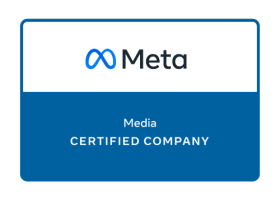Long-tail keywords are an essential component of successful search engine optimisation (SEO) and keyword research. They are longer and more specific keyword phrases that potential customers are more likely to use when they are closer to making a purchase or when they are using voice search. While they have lower search volume compared to short or “head” keywords, they hold great value if utilised correctly. By incorporating long-tail keywords into your marketing strategy, you can establish better communication with your customers and optimise your website’s SEO.
Key Takeaways
- Long-tail keywords are longer and more specific keyword phrases.
- They are used by customers who are actively shopping or using voice search.
- Although they have a lower search volume, they draw focused and committed traffic.
- Using long-tail keywords in advertising campaigns can result in lower costs per click.
- There are two types of long-tail keywords: topical and supporting.
Long-tail keywords play a crucial role in enhancing your online presence and achieving marketing success. By understanding the concept of long-tail keywords, their benefits, and the different types available, you can tailor your content strategy to attract targeted traffic and rank higher on search engine results pages. Utilise reliable sources for long-tail keyword suggestions and employ various methods, such as analysing competitor websites and monitoring online forums, to find the most effective long-tail keywords for your business.
Understanding Long-Tail Keywords
Long-tail keywords are longer and more specific keyword phrases that visitors are more likely to use when they’re closer to a point of purchase or when they’re using voice search. These keywords are crucial for businesses looking to optimise their website and reach their target audience effectively. While they may have lower search volume compared to short or “head” keywords, their value lies in their ability to draw focused and committed traffic.
By understanding the nature of long-tail keywords, businesses can establish better communication with their customers who are actively shopping for what they provide. These specific phrases allow you to target your audience accurately and drive organic traffic to your website. With long-tail keywords, you can attract customers who are already interested in your products or services, increasing the likelihood of conversions and sales.
Using long-tail keywords in your advertising campaigns can also result in lower costs per click, as there tends to be less competition. This means you can get more value from your advertising budget and reach a more targeted audience. To fully take advantage of long-tail keywords, it is essential to find a reliable source of keyword suggestions that focus on the tail rather than just the most popular keywords. By identifying and utilising long-tail keywords, businesses can achieve better website optimisation and establish a stronger online presence.
Understanding Long-Tail Keywords
Long-tail keywords are longer and more specific keyword phrases that visitors are more likely to use when they’re closer to a point of purchase or when they’re using voice search. These keywords play a crucial role in enhancing the effectiveness of your marketing strategies. By incorporating long-tail keywords, you can optimise your website’s SEO and attract more targeted traffic.
With lower search volume but higher relevancy, long-tail keywords allow businesses to establish better communication with their customers. Instead of competing for broad and highly competitive short keywords, using long-tail keywords helps you reach customers who are actively searching for specific products or services. This targeted approach leads to more focused, committed traffic and higher chances of conversion.
Furthermore, incorporating long-tail keywords in your advertising campaigns can lead to lower costs per click. The reduced competition for these keywords allows businesses to effectively allocate their advertising budget and maximise their return on investment. By focusing on long-tail keywords, you can elevate your SERP ranking, increase organic traffic, and create a content strategy that caters to specific search intents.
| Type of Long-Tail Keyword | Description |
|---|---|
| Topical Long-Tail Keywords | Unique queries that address specific user needs |
| Supporting Long-Tail Keywords | Less popular variations of more common search queries |
Understanding the different types of long-tail keywords is essential for tailoring your content strategy. Topical long-tail keywords focus on niche queries that cater to specific user needs while supporting keywords provide variations of more popular search queries. By incorporating both types into your content, you can attract targeted traffic and provide valuable information to your audience.
When it comes to finding long-tail keywords, utilising keyword research tools, analysing competitor websites, and monitoring forums like Quora and Reddit can provide valuable insights. These methods help you identify the language and queries used by your target audience, allowing you to create content that resonates with their needs and preferences.
In conclusion, long-tail keywords play a vital role in optimising your website and attracting targeted traffic. By understanding their significance and incorporating them into your marketing strategy, you can enhance your online presence, improve your search engine rankings, and drive relevant traffic to your website.
Benefits of Long-Tail Keywords
Long-tail keywords allow businesses to establish better communication with their customers who are actively shopping for what they provide. Unlike generic, short keywords, long-tail keywords are longer and more specific keyword phrases that visitors are more likely to use when they’re closer to a point of purchase or when they’re using voice search. While they may have a lower search volume, they can be incredibly valuable if used correctly in your content strategy.
One of the key benefits of utilising long-tail keywords is that they draw less traffic, but the traffic they do attract is more focused, committed, and genuinely interested in the products or services being offered. By targeting these specific search queries, you can increase your chances of reaching customers who are actively seeking what you provide. This highly targeted approach not only drives more relevant organic traffic to your website but also improves your conversion rates, resulting in higher success for your business.
Additionally, incorporating long-tail keywords into your advertising campaigns can result in lower costs per click. Since long-tail keywords have less competition compared to generic keywords, you can reduce your advertising spend while still reaching an audience that is more likely to convert. This cost-effective strategy allows you to optimise your budget and maximise your ROI.
| Benefits of Long-Tail Keywords |
|---|
| Establish better communication with customers actively shopping |
| Draw focused, committed, and interested traffic |
| Improve conversion rates and organic traffic |
| Reduce costs per click in advertising campaigns |
| Create a cost-effective advertising strategy |
Overall, incorporating long-tail keywords into your marketing strategy offers numerous benefits. By understanding the power of these specific search queries and tailoring your content to cater to them, you can elevate your SERP ranking and establish a strong online presence. Embrace the opportunity to connect with your target audience on a deeper level, optimise your website for long-tail keywords, and reap the rewards of increased organic traffic and conversions.
Types of Long-Tail Keywords
There are two types of long-tail keywords: topical and supporting, each serving a unique purpose in your SEO strategy. Topical long-tail keywords are specific queries that address the individual needs and interests of your target audience. These keywords focus on providing detailed, niche information related to your products or services. For example, if you have an online pet store, a topical long-tail keyword could be “best dog food for senior pugs.” This type of keyword attracts highly targeted traffic, often consisting of users who are closer to making a purchase decision.
On the other hand, supporting long-tail keywords are variations of more popular search queries. They may have a lower search volume but can still be valuable for driving organic traffic to your website. Supporting keywords allow you to capture a broader audience by targeting related topics and providing additional information. Using the previous example, a supporting long-tail keyword could be “nutritional requirements for senior pugs.” By incorporating both topical and supporting long-tail keywords into your content strategy, you can effectively cater to different search intents and attract a diverse range of potential customers.
The Importance of Targeting Both Types
While topical long-tail keywords target users who are actively searching for specific products or services, supporting long-tail keywords help to establish your website as a reliable source of information and build authority in your niche. By including a mix of both types in your SEO strategy, you can attract targeted traffic and engage with a wider audience. Remember, while topical keywords may bring in higher conversion rates, supporting keywords contribute to building brand awareness and attracting users who are still in the research phase.
It is essential to conduct thorough keyword research to identify relevant topical and supporting long-tail keywords that align with your business goals. Look for reliable sources that provide keyword suggestions with a focus on the tail rather than just the most popular keywords. This will ensure that your content strategy remains effective in capturing the attention of your target audience and driving organic traffic to your website.
| Type of Long-Tail Keyword | Purpose |
|---|---|
| Topical Long-Tail Keywords | Target specific user needs and drive highly targeted traffic |
| Supporting Long-Tail Keywords | Provide additional information, attract a broader audience, and build brand authority |
Finding Long-Tail Keywords
Finding the right long-tail keywords requires a strategic approach, involving keyword research tools, competitor website analysis, and monitoring online forums. By utilising these methods, you can uncover valuable insights that will drive targeted traffic to your website and boost your search engine rankings.
Keyword Research Tools
Keyword research tools are essential for identifying long-tail keywords that are relevant to your business. These tools provide insights into search volume, competition, and trends, helping you discover untapped opportunities. Take advantage of these tools to generate a list of potential long-tail keywords that have the potential to attract highly targeted traffic.
Competitor Website Analysis
Analysing competitor websites can provide valuable insights into the long-tail keywords they are targeting. Identify your top competitors and analyse their content to understand the keywords they are using. Look for gaps in their strategy and identify opportunities to target long-tail keywords that they may have overlooked. By leveraging competitor analysis, you can gain a competitive edge and drive organic traffic to your website.
Monitoring Online Forums
Online forums like Quora and Reddit are treasure troves of valuable information and insights. These platforms allow users to ask questions and engage in discussions on various topics. By monitoring these forums, you can identify common questions and pain points related to your industry. Use this information to create content that directly addresses these queries, incorporating long-tail keywords to attract users actively seeking answers to their specific needs.
| Method | Advantages |
|---|---|
| Keyword research tools | Provides insights on search volume and competition |
| Competitor website analysis | Identifies keywords your competitors are targeting |
| Monitoring online forums | Unveils common questions and pain points of your target audience |
In conclusion, finding the right long-tail keywords is a crucial aspect of any effective SEO strategy. By utilising keyword research tools, analysing competitor websites, and monitoring online forums, you can uncover valuable long-tail keywords that will attract targeted traffic and boost your website’s visibility. Take a strategic approach to keyword research and watch your organic traffic soar.
Conclusion
Long-tail keywords offer immense potential for website optimisation and should be an integral part of your marketing strategy. These longer and more specific keyword phrases are highly valuable when it comes to attracting targeted traffic and enhancing your online presence. By incorporating long-tail keywords into your content strategy, you can effectively communicate with customers who are actively seeking the products or services you provide.
Unlike short or “head” keywords, long-tail keywords may have lower search volume, but the traffic they generate is more focused and committed. This means higher conversion rates and a better return on investment for your advertising campaigns. By specifically targeting the needs and intentions of your audience, you can create content that resonates with them and drives organic traffic to your website.
When it comes to long-tail keywords, there are two types to consider: topical and supporting. Topical long-tail keywords are unique queries that address specific user needs while supporting keywords are variations of more common search queries. Understanding the distinction between these types allows you to tailor your content strategy to cater to different search intents and attract a wider range of targeted traffic.
There are various methods you can use to find long-tail keywords for your website. Conducting keyword analysis using reliable tools is a great starting point. Additionally, analysing competitor websites can provide valuable insights into successful long-tail keywords that you can incorporate into your own strategy. Monitoring online forums like Quora and Reddit can also help you identify questions and discussions related to your industry or niche, providing you with valuable long-tail keyword ideas.
In conclusion, by optimising your website for long-tail keywords, you can boost your search engine ranking, attract targeted traffic, and create content that caters to specific search intents. Embrace the power of long-tail keywords and watch your online presence soar.
FAQ
Q: What are long-tail keywords?
A: Long-tail keywords are longer and more specific keyword phrases that visitors are more likely to use when they’re closer to a point of purchase or when they’re using voice search. They have a lower search volume than short or “head” keywords, but they can be valuable if used correctly.
Q: How do long-tail keywords benefit businesses?
A: Long-tail keywords allow businesses to establish better communication with their customers who are actively shopping for what they provide. They draw less traffic, but the traffic they do draw is more focused, committed, and interested in the services being offered. Using long-tail keywords in advertising campaigns can also result in lower costs per click due to less competition.
Q: What are the two types of long-tail keywords?
A: There are two types of long-tail keywords: topical and supporting. Topical long-tail keywords are unique queries while supporting long-tail keywords are less popular variations of more popular search queries. Taking advantage of both types can result in more targeted traffic, easier ranking on search engines, and the ability to create content that caters to specific search intents.
Q: How can I find long-tail keywords?
A: There are different methods for finding long-tail keywords, including using keyword research tools, analysing competitor websites, and monitoring forums like Quora and Reddit for questions and discussions related to your topic. These methods can help you uncover relevant and impactful long-tail keywords to optimise your website content.



